Managing rental properties in HOA communities can present unique challenges for landlords. Homeowners’ Associations (HOAs) are responsible for maintaining property standards and enforcing community rules. These regulations can affect every aspect of property management, from tenant selection to daily operations. Understanding the relationship between HOA rules and rental property management is key to ensuring smooth operations and maintaining good relationships with tenants, HOA boards, and neighbors.
In Jupiter’s vibrant communities, such as those in Abacoa or Avenir, HOA rules play a significant role in how properties are managed and rented. While HOAs are designed to ensure that properties retain their value and are well-maintained, the restrictions they impose can sometimes create conflicts for landlords. It’s essential to familiarize yourself with these rules to avoid costly mistakes and legal challenges.
Understanding HOA Rules and Regulations
What Are HOA Rules?
HOA rules are guidelines established by the homeowners’ association to maintain the aesthetics, safety, and quality of life within a community. These rules are designed to ensure that the community remains cohesive, attractive, and comfortable for all residents. They can cover a wide range of issues, including property appearance, noise levels, parking regulations, and guidelines for renting out properties.
For rental properties, HOA rules can dictate whether or not short-term rentals are allowed, how many tenants can occupy a unit, and what types of modifications can be made to the property. Some HOAs have strict rules about exterior modifications, such as landscaping changes or the installation of fences, while others regulate the number of vehicles that can be parked on the property.
The Importance of HOA Rules in Rental Property Management
HOA rules are crucial in maintaining property values and the overall community atmosphere. Landlords must be fully aware of the rules before renting out properties to ensure that their tenants adhere to them. Violating HOA rules can lead to fines, legal disputes, and even eviction.
A well-run HOA can be a tremendous asset for property owners, as it ensures the upkeep of shared spaces and provides a level of protection for property values. Conversely, failure to comply with HOA rules can result in unnecessary legal battles and financial strain for landlords. Therefore, being proactive about understanding and following HOA regulations is vital for long-term success in property management.
Best Practice: Always request a copy of the HOA’s governing documents, including the Covenants, Conditions, and Restrictions (CC&Rs), before purchasing or renting out a property. Familiarize yourself with these documents and make sure your tenants understand the rules.
Key HOA Rules Affecting Rental Properties
Rental Restrictions
Many HOA communities, particularly those in high-demand areas like Jupiter, have specific restrictions regarding rental properties. These rules can vary widely from one HOA to another but often include limits on how long a property can be rented out, whether short-term rentals are allowed, and the number of tenants permitted in a single unit.
Some HOAs require a minimum lease term, which can range from six months to a year, in order to prevent short-term rentals. Others may have a cap on the percentage of units within the community that can be rented out at any given time. Understanding these rules is crucial for landlords who may want to rent out their properties to vacationers or short-term tenants.
Example: An HOA in a community near the beach may limit rentals to a minimum of 30 days to avoid issues with transient renters who may disrupt the neighborhood’s peaceful environment.
Maintenance and Property Appearance Standards
HOA rules often include maintenance standards for rental properties. Landlords must ensure that their properties meet these standards to avoid penalties and maintain a good relationship with the HOA and neighbors. These rules can include requirements for lawn care, exterior paint, roofing, and even window coverings.
For rental properties, it’s essential to make sure that tenants are aware of these rules and are responsible for following them. A well-maintained property not only enhances the neighborhood but also helps landlords avoid fines for non-compliance.
Tip: Schedule regular property inspections to ensure that your rental property complies with the HOA’s maintenance standards. It’s also a good idea to include maintenance clauses in your lease agreements to hold tenants accountable for maintaining the property.
Parking and Vehicle Regulations
Many HOA communities have strict rules about parking and the types of vehicles that are allowed on the property. For rental properties, this can be a source of frustration for both tenants and landlords. Common restrictions include limited parking spaces, no parking of commercial vehicles, and designated areas for guest parking.
As a landlord, it’s your responsibility to ensure that your tenants understand and follow these parking rules. If tenants violate parking regulations, it can lead to fines, towing, or other enforcement actions by the HOA.
Best Practice: Include a section in your lease agreement that addresses parking policies, specifying where tenants can park and what types of vehicles are allowed. Ensure that your tenants understand the importance of following these rules to avoid fines or other issues.

Get a Free Rental Analysis
Want to know how much your home will rent for? We’ll send you a free rental report!
Managing Tenant Relationships and Ensuring Compliance with HOA Rules
Clear Communication with Tenants
One of the most effective ways to prevent issues between tenants and the HOA is to establish clear communication from the very beginning. As a landlord, it is your responsibility to ensure that tenants are well-informed about the community rules and regulations, especially those set forth by the HOA.
When new tenants move in, provide them with a copy of the HOA guidelines and highlight the most important rules that could directly affect their daily lives, such as noise regulations, parking rules, and the process for requesting maintenance. This proactive approach helps avoid misunderstandings and ensures tenants know what is expected of them.
Additionally, establish open channels of communication so tenants can ask questions or raise concerns about HOA rules. Being responsive to your tenants will foster a good landlord-tenant relationship and can help address potential problems before they escalate.
Best Practice: Include a section in your lease agreement that explicitly states the tenant’s responsibility to follow all HOA rules. This clause should make clear that any violations of the HOA’s guidelines will result in consequences, which may include financial penalties or eviction.
Regular Property Inspections
Performing regular inspections of your rental property is another essential part of managing tenant compliance with HOA rules. While tenants are responsible for adhering to community guidelines, it’s ultimately up to you, the property owner, to ensure that the property remains in good standing with the HOA.
Regular inspections allow you to identify any issues early on—whether it’s unauthorized modifications to the property, issues with cleanliness, or violations such as unapproved parking. Inspections should be scheduled at regular intervals (for example, every 6 months or annually), and tenants should be notified in advance to avoid any misunderstandings.
Tip: During property inspections, take the opportunity to remind your tenants about any community rules they may have overlooked, such as trash disposal or the handling of common areas.
Dealing with Tenant Violations
Even with clear communication and regular inspections, tenant violations of HOA rules can still occur. When a violation is reported, it’s essential to handle the situation promptly and professionally to prevent escalating issues.
When you are notified of a violation, such as a noise complaint or improper parking, contact your tenants immediately to discuss the problem. Provide them with a copy of the HOA’s rules and ask them to correct the issue. Many violations can be resolved quickly with a simple reminder or a change in behavior.
If the tenant does not comply after the first warning, it may be necessary to escalate the issue. This could involve issuing a formal notice of non-compliance or, in the worst-case scenario, terminating the lease agreement. Always follow the proper legal procedures to ensure that any actions you take are within the bounds of the law.
Best Practice: Keep a record of all communications regarding violations, including emails, phone calls, and letters. This documentation will be helpful if legal action becomes necessary.
Common Rental Property Management Challenges and Solutions
Short-Term Rental Restrictions in Jupiter HOA Communities
One of the most significant challenges for rental property owners in Jupiter is dealing with short-term rental regulations. Many HOAs restrict or prohibit short-term rentals (such as those listed on Airbnb or Vrbo) to maintain a peaceful and consistent neighborhood environment.
While some HOAs may allow short-term rentals under certain conditions, many impose strict limits on rental duration or the number of rental properties allowed within the community at any given time. In some cases, HOAs may require rental applications to be submitted and approved before tenants can move in, even for long-term rentals.
Solution: Before listing your property on short-term rental platforms, review the HOA’s rules regarding rental properties. If short-term rentals are not allowed, you can still rent the property out for a longer-term lease to avoid conflicts with the HOA.
Additionally, some HOAs may have specific requirements for tenants, such as a background check or a minimum rental term, so be sure to factor these requirements into your rental process.
Tip: Even if short-term rentals are allowed in your HOA, be mindful of your neighbors and other community members. Frequent turnover and transient tenants can disrupt the peaceful atmosphere that many HOA communities strive to maintain.
Parking and Vehicle Regulations
Parking is another common source of conflict in HOA-managed communities. In many cases, there are restrictions on where tenants can park their vehicles, what types of vehicles are allowed, and whether additional vehicles, such as boats or RVs, can be parked on the property.
To prevent parking violations, clearly communicate the HOA’s parking rules to your tenants, including designated parking spaces, parking permits, and guest parking procedures. If parking is an issue, consider providing parking passes to ensure that tenants park in the appropriate spaces.
Additionally, make sure your tenants are aware of any restrictions on the types of vehicles allowed in the community. Some HOAs prohibit the parking of commercial vehicles, RVs, or trailers within residential areas.
Best Practice: Include specific parking rules in your lease agreement to remind tenants of the community’s restrictions. This will reduce the likelihood of parking-related violations and provide grounds for enforcement if necessary.
Managing HOA Fees and Increasing Costs
As a rental property owner, you may experience increases in HOA fees, which can impact your profitability. HOA fees cover the costs of maintaining common areas and community amenities, and while they are necessary to ensure the upkeep of the neighborhood, fee increases can be a challenge for landlords.
Solution: Stay informed about any potential fee increases by attending HOA meetings, reviewing financial statements, and regularly communicating with the HOA board. If fees are set to increase, plan accordingly by adjusting your rental pricing to cover the added expenses.
It’s also a good idea to factor potential fee increases into your long-term rental strategy. If you anticipate that fees may rise in the future, try to negotiate with the HOA board for a cap on fee increases, or adjust your property’s rent to maintain a balance between affordability for tenants and covering your costs.
Best Practices for Long-Term Property Management in HOA Communities
Building Positive Relationships with the HOA
One of the best ways to ensure smooth property management in an HOA community is to foster a positive relationship with the association. A good relationship with the HOA can help you stay informed about rule changes, fee increases, and community events.
Attend HOA meetings, where you can engage with board members and other residents, and offer feedback or suggestions. Being an active and responsible property owner within the community will not only help you maintain compliance with the rules but can also enhance the appeal of your property to prospective tenants.
Tip: If you plan to make any modifications to your rental property, such as landscaping changes or adding a new structure, seek approval from the HOA first to avoid potential fines.
Property Maintenance and Curb Appeal
Maintaining your rental property’s curb appeal is vital for ensuring that it aligns with the HOA’s aesthetic standards. Communities governed by an HOA typically have strict guidelines for property appearance, including rules regarding lawn maintenance, exterior colors, and the placement of decorations.
Regularly inspect your rental property’s exterior to ensure that it meets the community’s guidelines. Pay attention to lawn care, including mowing, trimming, and weeding, and ensure that the exterior of the home remains clean and well-maintained.
Best Practice: Hire a professional landscaping company to maintain your property’s exterior, ensuring it remains in good condition and compliant with HOA rules. Regular maintenance will also help you attract high-quality tenants who are looking for a well-kept living space.

Handling Disputes and Legal Considerations in HOA Communities
Addressing Tenant Complaints
In HOA communities, tenants may occasionally encounter issues with neighbors or the association itself. It’s essential to approach tenant complaints with professionalism and a problem-solving mindset. Common complaints may involve noise disturbances, parking issues, or disagreements about the HOA’s rules and policies.
When handling tenant complaints, always remain neutral and objective. Start by gathering all the relevant details of the complaint and then assess whether it aligns with the HOA’s rules. If the issue involves a neighbor, it may be helpful to facilitate communication between the parties involved to resolve the problem amicably. Sometimes, a simple conversation can prevent further escalation.
If the complaint involves a violation of HOA rules, such as improper parking or excessive noise, advise your tenant to submit a formal complaint to the HOA board. As a landlord, you may also be required to follow up with the HOA if the situation involves a property issue that you are responsible for addressing.
Best Practice: Establish a protocol for handling tenant complaints and make sure your tenants know how to contact you with concerns. Promptly addressing issues can help prevent them from escalating into bigger problems.
Understanding HOA Dispute Resolution Mechanisms
If a dispute arises between you, your tenant, and the HOA, understanding the HOA’s dispute resolution process is crucial. Many HOAs have formal procedures in place for resolving conflicts, which often include mediation or arbitration as alternatives to litigation.
Before engaging in any legal action, review your community’s governing documents to understand the process for resolving disputes. If your tenant has violated HOA rules, your first step should be to communicate directly with the HOA to resolve the issue. If the dispute involves a legal matter, such as evicting a tenant for violating HOA rules, it’s essential to seek legal advice from an attorney familiar with both landlord-tenant law and HOA regulations.
Tip: Document all communications with the HOA and your tenants regarding disputes. Clear records will protect your interests should you need to escalate the matter further.
Legal Considerations for Landlords in HOA Communities
Landlords in HOA communities must comply with both state and local landlord-tenant laws and the specific regulations of the HOA. In some cases, HOA rules may conflict with state laws or ordinances, so it’s important to consult with a real estate attorney to ensure that your actions are legally sound.
One common area of concern is the eviction process. If a tenant violates HOA rules, such as engaging in disruptive behavior or making unauthorized property modifications, landlords may need to initiate eviction proceedings. However, it’s essential to understand the proper legal procedures for eviction to avoid potential lawsuits.
Best Practice: Always consult with a real estate attorney before taking legal action against a tenant. They can help you navigate the complexities of both HOA regulations and tenant rights to ensure that you comply with all applicable laws.
Maximizing Rental Income While Staying Compliant with HOA Rules
Understanding Market Demand in Jupiter Communities
To maximize rental income, it’s important to have a solid understanding of the local rental market in Jupiter and how HOA rules may impact your rental strategy. Factors such as property location, the amenities offered by the HOA, and the target demographic all play a role in determining what rent you can charge for your property.
Jupiter’s HOA communities are desirable for families, retirees, and individuals seeking a well-maintained and peaceful living environment. Many of these communities offer desirable amenities such as pools, parks, and fitness centers, which can help justify a higher rental rate. However, be mindful that rental income can be affected by HOA rules that limit short-term rentals or impose restrictions on the types of tenants allowed.
Tip: Keep an eye on local rental trends, including rent prices for similar properties in HOA communities, to ensure your rental price is competitive while still providing a good return on investment.
Offering High-Quality Amenities to Attract Tenants
HOA communities often provide a wide range of amenities, which can make your rental property more attractive to potential tenants. Depending on the community, these may include fitness centers, clubhouses, playgrounds, and walking trails. As a landlord, you should highlight these amenities in your marketing materials to attract high-quality tenants.
Additionally, consider investing in property improvements that align with HOA rules, such as upgrading the kitchen or bathrooms or adding outdoor living spaces like a patio or deck. These improvements can increase the rental value of your property and appeal to potential tenants seeking high-quality living spaces.
Best Practice: Prioritize maintenance and invest in upgrades that enhance the living experience for your tenants. This will not only help retain good tenants but also increase the overall value of your property.
Long-Term Property Value and Investment Strategy
Investing in properties within HOA communities can offer long-term benefits. These communities are often well-managed and maintained, which helps protect property values over time. The added layer of consistency and community standards provided by the HOA can make your investment more stable in the long run.
To ensure that your property continues to appreciate in value, stay up to date with any changes to HOA rules or community improvements. Regularly maintaining the property and making strategic upgrades will help keep it attractive to future tenants, ensuring a steady stream of rental income.
Tip: Consider property appreciation when setting long-term investment goals. While rental income is important, a well-maintained property in an HOA community can see substantial increases in value over time, especially if the community itself undergoes improvements or developments.
Ensuring Success in Rental Property Management within HOA Communities
Successfully managing rental properties in Jupiter’s HOA communities requires a proactive approach, clear communication with tenants, and strict adherence to HOA rules and regulations. By fostering positive relationships with both the HOA and your tenants, staying informed about community guidelines, and addressing any issues that arise promptly, you can ensure that your rental property remains in good standing and continues to generate a reliable income.
From understanding the complexities of HOA rules to handling legal disputes and maximizing rental income, this guide provides essential insights and practical strategies to navigate the unique challenges of property management in Jupiter’s HOA communities. By following these best practices, you’ll not only maintain a harmonious living environment but also position your property for long-term success.



